Cargando...
Recursos educativos
-
Nivel educativo
-
Competencias
-
Tipología
-
Idioma
-
Tipo de medio
-
Tipo de actividad
-
Destinatarios
-
Tipo de audiencia
-
Creador
-
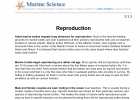
Marine Turtles: Reproduction
Cristina Seco Organización
- 891 visitas
A webpage discussing the reproductive behaviour of turtles. It mainly discusses how the eggs are laid by the mother but also talks about mating and hatching.
-

Assisted reproductive technology: Definition, types, and ethics
V&V Books Vicens Vives Organización
- 903 visitas
Assisted reproductive technology involves the manipulation of eggs, sperm, or embryos to achieve pregnancy. Learn more about types of ART and their success rates here.
-
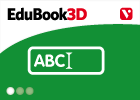
Correct. Oviparous animals
EduBook Organización
- 3777 visitas
Correct the underlined mistakes in the text with the correct words: shell yolk incubate embryo In oviparous animals, the zygote develops into an sperm inside the egg. The egg forms a protective white…
-
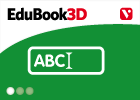
Complete. Characteristics of birds
EduBook Organización
- 3416 visitas
Complete the sentences with the correct words: beak nest constant wings oviparous The upper limbs of birds take the form of . Birds are warm-blooded animals. Their body temperature is . Birds do not…
-
Initial evaluation 03 - Animals
EduBook Organización
- 3282 visitas
Match the groups of animals with their characteristics: Fish They have hair or fur. They have feathers. They use gills to breathe. They have an internal skeleton. They reproduce with eggs. They regulate…
-
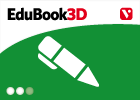
Answer. From zygote to birth
EduBook Organización
- 2839 visitas
Remember what you have studied in this section and answer the questions: How are oviparous animals born? Which animals have simple eggs? Which animals have more complex eggs? Where do the embryos of…
-
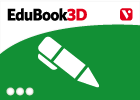
Learn. Look at parts of an egg
EduBook Organización
- 2718 visitas
What do we need? A hard boiled egg Tweezers A chopping board A knife A teaspoon What do we do? We are going to investigate what is inside a chicken egg. Birds' eggs are larger and more complex than…
-
True/false. Characteristics of birds
EduBook Organización
- 2603 visitas
Decide if the following statements are true or false: Birds don't have teeth, they have a beak. ➝ Birds have a variable body temperature. ➝ Birds' eggs don't have shells. ➝ Birds…
-

The life cycle of a butterfly
EduBook Organización
- 972 visitas
Look at the pictures. Then put the sentences in the correct order to describe the life cycle of a butterfly. A butterfly comes out. The caterpillar eats and becomes very big. A butterfly lays eggs on a…
-
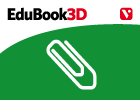
A peasant's diet
EduBook Organización
- 2666 visitas
During the Middle Ages, peasants did not eat a varied diet. Bread and porridge were their basic foods. They also ate cheese, eggs, pulses and vegetables that they grew themselves. Peasants ate a small…
Te estamos redirigiendo a la ficha del libro...











